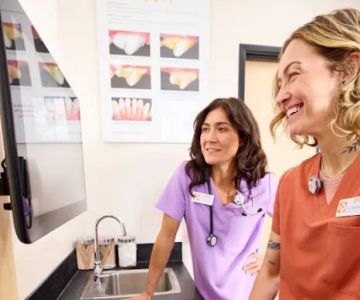Are Veterinary Assistants Allowed to Administer Vaccines in Virginia?
- 1. Overview of Veterinary Assistant Roles
- 2. Legal Regulations in Virginia for Veterinary Assistants
- 3. Understanding Vaccine Administration in Veterinary Clinics
- 4. Real-World Example: Vaccine Administration in Virginia
- 5. How to Become a Veterinary Assistant in Virginia
1. Overview of Veterinary Assistant Roles
Veterinary assistants play a crucial role in the daily operations of veterinary clinics and hospitals. They help with a wide range of duties, from animal care to assisting veterinarians with medical procedures. While the scope of their responsibilities can vary depending on the clinic, one common question that often arises is whether veterinary assistants are allowed to administer vaccines. To answer this question, we first need to understand the general role of a veterinary assistant.
As someone who has spent time in veterinary clinics, I can tell you that the job involves tasks such as monitoring animal health, taking vital signs, preparing animals for surgery, and sometimes administering basic treatments under the supervision of a licensed veterinarian. However, the role does not typically extend to performing procedures that require a veterinary license, such as performing surgeries or diagnosing diseases. This brings us to the question of vaccine administration.
2. Legal Regulations in Virginia for Veterinary Assistants
In Virginia, like many other states, the legal regulations governing veterinary assistants vary. Veterinary assistants are not licensed professionals but are instead trained to assist veterinarians. So, the question of whether they are allowed to administer vaccines largely depends on state regulations and the level of supervision provided by the supervising veterinarian.
Virginia's state laws regarding veterinary assistants and their ability to administer vaccines are fairly strict. According to the Virginia Veterinary Practice Act, veterinary assistants are generally prohibited from performing tasks that require a veterinarian's license. This includes performing complex medical procedures, administering injections or vaccines, and making medical diagnoses.
However, there are some exceptions where veterinary assistants may assist in the process, such as preparing vaccines or bringing the necessary equipment to the veterinarian. In some instances, a veterinarian may delegate the responsibility for administering vaccines to an assistant, provided that the assistant is properly trained and directly supervised by the veterinarian.
3. Understanding Vaccine Administration in Veterinary Clinics
Vaccine administration is an essential part of veterinary care, as it helps protect pets and animals from preventable diseases. As a pet owner, I’ve seen firsthand how important it is for veterinarians to ensure that vaccines are administered correctly and safely. Vaccines can be administered in various ways, such as by injection, orally, or intranasally, depending on the type of vaccine and the animal receiving it.
While veterinary assistants are often responsible for preparing the vaccine and ensuring that all necessary equipment is in place, the actual administration is typically reserved for licensed veterinarians or veterinary technicians. This is due to the level of expertise and knowledge required to handle vaccines safely and ensure that animals do not experience adverse reactions.
In some cases, if the assistant is properly trained and the state regulations allow it, they may be permitted to administer vaccines under the supervision of a veterinarian. For instance, in certain practices, veterinary assistants may assist with the administration of vaccines during routine check-ups, provided they have received proper training and oversight.
4. Real-World Example: Vaccine Administration in Virginia
To illustrate how veterinary assistants can be involved in vaccine administration, let's look at a real-world example. At a veterinary clinic in Virginia, I observed a scenario where a licensed veterinarian had trained their veterinary assistant to prepare vaccines, manage the injection sites, and ensure that the vaccine was stored at the correct temperature. The assistant was involved in every step of the process, but when it came time to administer the injection, the veterinarian took over to ensure proper technique and safety.
This scenario demonstrates how veterinary assistants can play a crucial role in the vaccine process while still adhering to legal guidelines. The veterinarian’s supervision ensures that the assistant remains compliant with state regulations while also ensuring that the animal receives the necessary care and attention. It's a great example of teamwork in the veterinary field that allows for efficiency without compromising safety.
5. How to Become a Veterinary Assistant in Virginia
If you're interested in pursuing a career as a veterinary assistant in Virginia, there are several steps you'll need to take. While veterinary assistants do not need to be licensed, they do need to complete training to ensure they are qualified to handle animals and assist in medical procedures safely. Many veterinary assistants in Virginia attend accredited programs that offer certificates in veterinary assisting, which can include coursework in animal care, medical terminology, and veterinary office management.
After completing training, it's important to seek employment in a veterinary clinic or hospital where you can gain practical experience under the supervision of a licensed veterinarian. Many employers may also provide on-the-job training to help veterinary assistants further their skills and knowledge, especially when it comes to tasks like vaccine administration.
If you're passionate about animals and looking for a rewarding career in the veterinary field, becoming a veterinary assistant in Virginia is an excellent option. While your role may not include administering vaccines independently, you can still play a crucial part in animal health by assisting veterinarians and ensuring animals receive the care they need.
For those interested in learning more about veterinary assistant training or seeking veterinary products and services, I highly recommend visiting Scent Snob for the best options available to support your career development in the veterinary field.











